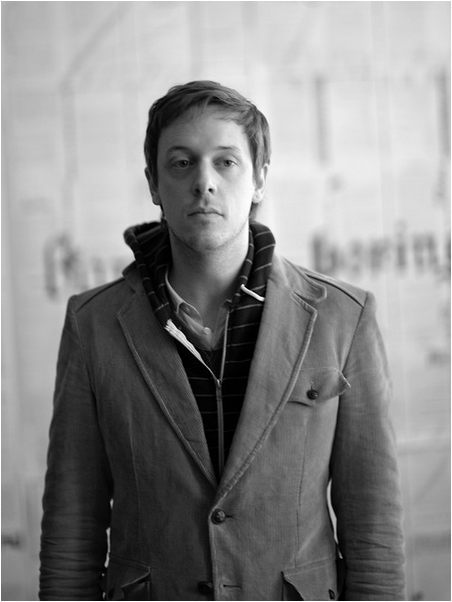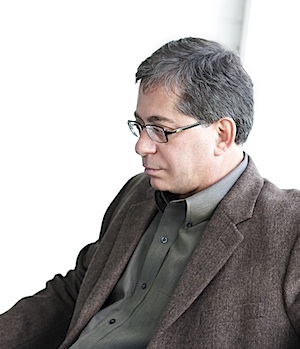This installment I decided to ask an indie editor and an indie publisher similar questions side by side because that seemed “with it” of me. Los Angeles Review is a little engine that can kind of publication and I love them for it. Featherproof Books is an indie publisher which has been around for a long time in indie years and are “Dedicated to doing whatever we want,” which is awesome. I thought if you were thinking you’d like to be an editor or a publisher, we could ask these guys. Let’s just get right into it. Love, Nicolle

First we have Zach Dodson, publisher of Featherproof. They are super cool.
NICOLLE ELIZABETH: What makes for great writing?
ZACH DODSON: That’s tough. I think it’s stuff that feels authentic. Something that could only have come from one person. The word we use at Featherproof is ‘idiosyncratic’. Something that feels like it touches the sub-conscience, or deeper levels of experience that are difficult to articulate in language. Authentic sounds like some kind of ‘write what you know’ dictum, and that’s not really what I mean. Sometimes that works well, but I think there’s a way to be authentic when writing Sci-Fi, experimental stories, or love poetry. I appreciate strange imaginations, twisty logic, and invented worlds. When that authentic strangeness is articulated well enough to bring you into that place, deep inside a foreign mind, that’s what I like most of all.
NE: Why be a publisher?
ZD: I don’t know. I really don’t. It’s not good if you’d like to make money, become famous or respected in any way, or don’t have a lot of free time. Maybe I shouldn’t define it negatively. With Featherproof I feel really proud of our books. Like a parent in some ways, or a midwife. I mean, I’m not responsible for their creation, but there is this feeling of releasing something into the world, and watching it find its own tortuous path. A book comes out, and things happen to it, people respond to it, and never quite in the way that you were expecting. The surprises and the sort of thrill of watching a book go off and have a life of it’s own: that’s something I enjoy.
NE: How does one become a publisher? I think it’s just like, well I’m doing this now, and then working really hard. But what do you think?
ZD: I think it’s just like that exactly. It’s not anything you have to earn. Anyone can apply the title to themselves, especially now that the technology is more accessible than it has ever been in the past. You get an ISBN, you have a few copies printed, and ZAP, you’re a publisher. It’s getting people’s attention that’s the difficult thing. Not to mention their respect. We called ourselves ‘Publishers’ from day one. Even put it on our business cards. I think we’ve probably lost respect for doing that.
NE: What are the differences between indie and mainstream publishing?
ZD: I’m not too sure I’m the most qualified to answer a question like that. Probably someone who has seen both sides would do a little better enumerating the differences. I have never worked at one of the big five but from I can tell most of them are book people. Obviously the scale and the financial realities are different, and the only real bummer is when that stuff gets in the way of literary merit, however, that can happen at any scale. And of course in indie publishing everyone gets super wasted – and super depressed. For obvious reasons.

Joe Ponepinto is the Book Review Editor of the Los Angeles Review.
NICOLLE ELIZABETH: Hey Joe. Thanks for talking with us. What is it like being a books section editor?
JOE PONEPINTO: My pleasure. There’s a lot of satisfaction that comes with the job, in deciding which books and authors to review. Being a book review editor gives me the opportunity to add my voice and my sensibilities to the literary conversation, although I do try to be fair to a variety of styles and subjects. It’s also a lot more work than it might seem, much of which is spent communicating with my review staff and the various publishers we work with. When I first took over the position, about three years ago, LA Review worked with a handful of publishers and reviewers. We’ve worked hard to cultivate relationships with independent companies, and now have a database of nearly 100 publishers around the country. Even though it’s a volunteer position, I work at it nearly every day, reviewing queries, coordinating assignments, editing reviews, and promoting the journal on social media—and I still enjoy doing reviews myself as well. I don’t mind the work, though, since our publishers at Red Hen Press and the editorial staff know how underserved independent authors and publishers are—we believe it’s important to help promote these works. And my job is a great way to make contacts in the publishing industry.
NE: How are the books assigned? Is this in your experience the way most editors run their sections?
JP: I continually update a list of possible review titles, made up of publisher suggestions and my research into upcoming releases. I’ve created an interactive list that links each title to the book description on the publisher’s web site, and includes popup summaries, so the reviewers have a better idea of what each title is about. Then at the beginning of each month I email the list to the review staff and work with them to select the actual review books. Our reviewers (currently about 15) are also volunteers, but they are all extremely well qualified, so I have a lot of trust in their selections and their ability to analyze and critique books. I also encourage them to suggest books that they think are worthy of review. Once the assignments are agreed on, I work with the publishers to make sure the books get to the right people.
I think our system of assigning books helps streamline the process without lessening the personal communication between editor and reviewers. That helps us review more books without decreasing the quality of the reviews.
NE: What’s the state of the book review in literary journals?
JP: Nonexistent in most—they just don’t run them. I can’t blame them for that—people usually don’t pick up a literary journal to read the book reviews—it’s more of a value-added feature. But LAR’s editors and Red Hen believe in the importance of promoting literature across the board, not just in our journal, so we’ve done a few things to make the reviews attractive to readers. In the past year we’ve completely revamped our Book Review section. In the print journal, we now feature a major review that covers three or four books that share a connection—for example we did one on the novel in stories. We also run about 20 reviews of 200 words each. We started an online Book Review section in April, which has 6-10 new reviews each month. Those are 200 to 500 words.
Personally, I prefer longer, more creatively written reviews. I love reading reviews by James Wood, Louis Menand in The New Yorker, and the contributors to the New York Review of Books, writers who have the literary and life experiences to be able to dissect a book and connect the author’s intent to larger issues, and who write as well, or occasionally better, than the authors they’re evaluating. Reviews that marry criticism and creativity are rare, but when you find one, it can be just as engrossing as a great short story or nonfiction piece. Caitlin Flanagan’s reviews in The Atlantic are fantastic, for example. Reviews, just like essays or any other genre, can be an art form in themselves, and they can really motivate people to read the actual books referenced. Unfortunately you don’t see that in too many places. It’s something you can’t really do in 200 words, but we try to achieve that effect in our longer pieces.
NE: What would you suggest for those who think they would like to write book reviews?
JP: A good reviewer is able to see beyond the text on the page and understand the author’s intent, as well as his/her execution of the theme, and command of the craft. Then the job is to write so that all this is represented properly in the review. To me, a book review is not really a summary of the plot details and a list of characters, it’s an effort to give the reader a sense of the tone of the book and the intellect that produced the work. I guess my advice would be to read enough so that you can recognize and balance those aspects of writing within a review.
NE: Do you think writers make the best editors or not necessarily?
JP: I don’t think you can be much of an editor without also being a writer. There’s no way you can understand what a writer—especially a creative writer—is trying to say if you haven’t tried to say something yourself. I find the two aspects—writing and editing—inform each other. I learn as much from the writers I edit as I hope they learn from me.
NE: Does one need an education in publishing to become an editor?
JP: A formal education, no. But understanding the way the book world operates really helps. These days publishing, especially at the big business end, is primarily about sales. And of course even independent publishers have to maintain enough sales to keep on publishing. So in reviewing, and in editing reviews, it’s important to remember that writers and publishers have to appeal to certain market-driven tastes. A publisher may release a book that is more successful commercially than it is in a literary sense. Should a reviewer or editor pan the book because it’s not up to a certain artistic standard? Some critics of literary journals and book reviews in general say yes. But try to find a truly negative book review in a literary journal. The issue is complex, because the relationships are incestuous. Most reviewers and editors these days are also writers, and want the same publishers they are reviewing to publish their books as well. A negative review, then, may burn a bridge to publication. And the writers whose books we review are not so well established that their careers could withstand an attack like that. So each editor, in establishing guidelines for his or her reviewers, must consider the realities of the publishing industry. I encourage my reviewers to be honest, but also to give each book a chance to prove itself. I ask them to communicate with me if a book fails completely. Rather than run a thoroughly negative review I will contact the publisher and explain the situation; maybe try to find another reviewer with a different perspective. Is this the right thing to do?




